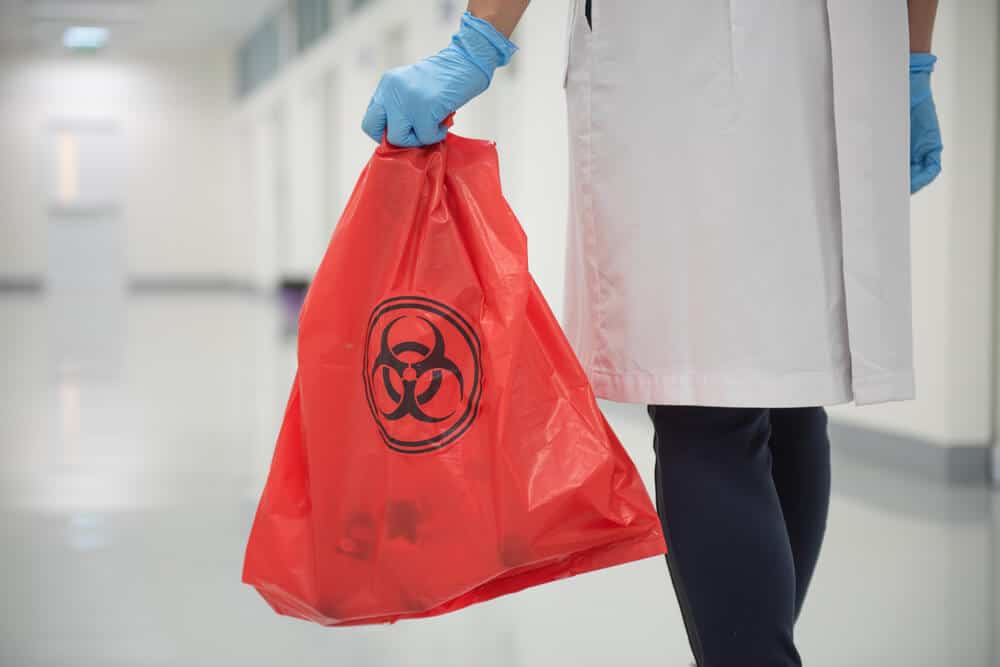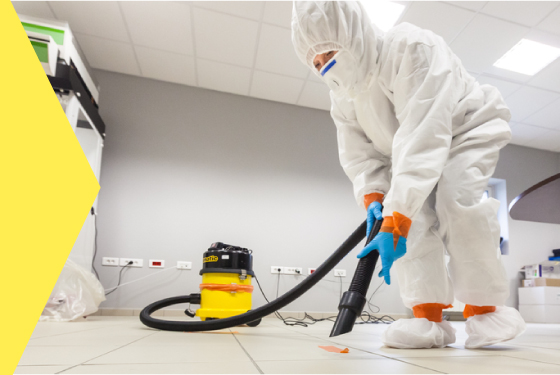Clandestine Lab Cleanup: Comprehensive Purification for Hazardous Sites
Specialist Biohazard Cleansing and Purification for Blood, Bodily Fluids, and Hazardous Products
The prospective health and wellness threats connected with direct exposure to biohazards underscore the vital need for careful handling and thorough cleaning. As we browse the intricate landscape of biohazard cleaning, comprehending the nuances of laws, compliance, and the specialized tools at play becomes important in making certain a complete and risk-free decontamination process.
Wellness Threats of Biohazard Exposure
Direct exposure to biohazards postures significant wellness threats that can cause extreme consequences for individuals and areas alike. Biohazards encompass a wide variety of organic substances, consisting of blood, physical liquids, mold and mildew, germs, infections, and various other potentially contagious products. When people enter into contact with these biohazards, whether through accidents, incorrect handling, or ecological direct exposure, they deal with the threat of contracting major ailments or conditions.
Among the key health dangers related to biohazard direct exposure is the transmission of transmittable illness. Bloodborne microorganisms such as HIV, liver disease B and C, and numerous microorganisms can be existing in biohazardous materials, posturing a straight threat to human health. Inhaling air-borne biohazards like mold spores or entering call with contaminated surfaces can also bring about respiratory problems, allergies, and other damaging wellness impacts.
Furthermore, biohazard exposure can have long-term health and wellness effects, with some illness manifesting years after the preliminary call (Blood Cleanup). As a result, it is critical to prioritize proper biohazard cleaning and decontamination to alleviate these health and wellness threats and guarantee the safety of individuals and areas

Specialized Training for Biohazard Clean-up
When it pertains to managing biohazard cleanup effectively and securely, specialized training plays a basic role in making sure correct purification procedures are adhered to. Biohazard clean-up calls for specific understanding and skills to successfully mitigate dangers related to bloodborne microorganisms, bodily liquids, and dangerous materials. Experts trained in biohazard cleanup go through rigorous instruction on just how to securely manage, get rid of, and deal with biohazardous products to stop contamination and exposure.
Specialized training for biohazard cleanup covers a variety of important topics, consisting of proper individual safety devices (PPE) use, bloodborne pathogen understanding, purification strategies, and hazardous waste disposal protocols. People trained in biohazard cleanup are equipped with the necessary expertise to assess contamination degrees, determine potential hazards, and carry out suitable cleanup treatments in conformity with regulative criteria.
Continual training and education and learning are extremely important in the field of biohazard cleaning to stay upgraded on the most recent decontamination innovations, security methods, and guidelines. By purchasing specialized training, biohazard cleaning experts can efficiently respond to emergency situation cleanup circumstances and protect both public health and the environment.
Relevance of Proper Decontamination Methods
Using appropriate purification strategies is vital in biohazard clean-up to successfully decrease and eliminate harmful materials health risks. Efficient decontamination not just makes certain the removal of visible traces of blood, physical liquids, and various other biohazards but additionally targets undetectable virus that may pose serious health threats otherwise correctly eliminated. By adhering to strict purification methods, trained specialists can dramatically lower the danger of direct exposure to dangerous microorganisms, viruses, and germs that could lead to conditions or infections.
Correct purification methods involve using specific devices and disinfectants that are especially designed to counteract biohazards successfully. Comprehensive cleaning and sanitation of polluted areas are vital to prevent the spread of pathogens and ensure a secure atmosphere for occupants. Additionally, the right disposal of biohazardous waste adhering to decontamination treatments is important in stopping contamination of various other surface areas or individuals.

Tools and Devices for Safe Cleaning
When dealing with blood, bodily liquids, or dangerous products, biohazard cleaning specialists rely on specialized equipment to minimize direct exposure risks and thoroughly sanitize the affected area. In addition, biohazard cleaning packages containing anti-bacterials, absorbing materials, and biohazard bags are made use of to safely dispose and contain of polluted things.
Advanced cleaning tools like hospital-grade anti-bacterials, HEPA-filtered vacuum cleaners, and fogging equipments are used to sanitize surfaces and eliminate biohazards effectively. Specialized devices such as sharps containers and biohazard waste disposal bins are used to securely take care of sharp objects and biohazardous waste materials. By using the ideal tools and tools, biohazard cleaning experts can make sure a complete cleaning procedure that focuses on safety and security and reduces health and wellness dangers for both employees and owners of the affected space.
Regulations and Compliance in Biohazard Cleaning
Appropriate adherence to guidelines and conformity criteria is extremely important in biohazard cleaning to ensure the security of both workers and the setting. Federal government firms such as OSHA (Occupational Safety And Security and Wellness Management) and the EPA (Environmental Defense Firm) have actually established particular guidelines for biohazard cleanup procedures to minimize my link health risks and environmental contamination. These regulations cover a variety of facets consisting of the handling, transport, and disposal of biohazardous products, in addition to the necessary training and safety tools needed for workers included in the cleanup process.
Biohazard cleansing firms need to stay up-to-date with these regulations to assure that their procedures fulfill the called for safety and security requirements. Failure to abide by these regulations can cause serious consequences, consisting of penalties, lawsuit, and jeopardizing the health and wellness of individuals and the atmosphere. By complying with strict regulations and conformity steps, biohazard cleaning firms can efficiently mitigate threats and guarantee a secure and extensive cleaning process for all events involved.
Verdict
Finally, biohazard cleaning and purification require specific training, proper methods, and adherence to regulations. Direct exposure to blood, physical fluids, and unsafe products postures substantial wellness dangers, making it essential to make use of the right devices and devices for risk-free cleaning. By following stringent methods and guidelines, experts can efficiently alleviate the dangers connected with biohazard direct exposure and ensure the security of both themselves and others.
As we browse the detailed landscape of biohazard cleanup, comprehending the subtleties of regulations, compliance, and the specific tools at play comes to be critical in guaranteeing a risk-free and detailed decontamination procedure. (Blood Cleanup)
When it comes to taking care of biohazard cleanup efficiently and safely, specialized training plays an essential function in making certain correct purification treatments are adhered to.Making use of correct purification strategies is crucial in biohazard cleanup to efficiently get rid of harmful materials and lessen health risks. Additionally, biohazard cleaning kits containing anti-bacterials, absorbing products, and biohazard bags are utilized to securely consist of and dispose of contaminated products.
Federal government companies such as OSHA (Occupational Security and Health Administration) crime scene cleanup franchise for sale and the EPA useful source (Environmental Protection Firm) have actually established particular guidelines for biohazard cleaning treatments to reduce health risks and ecological contamination.